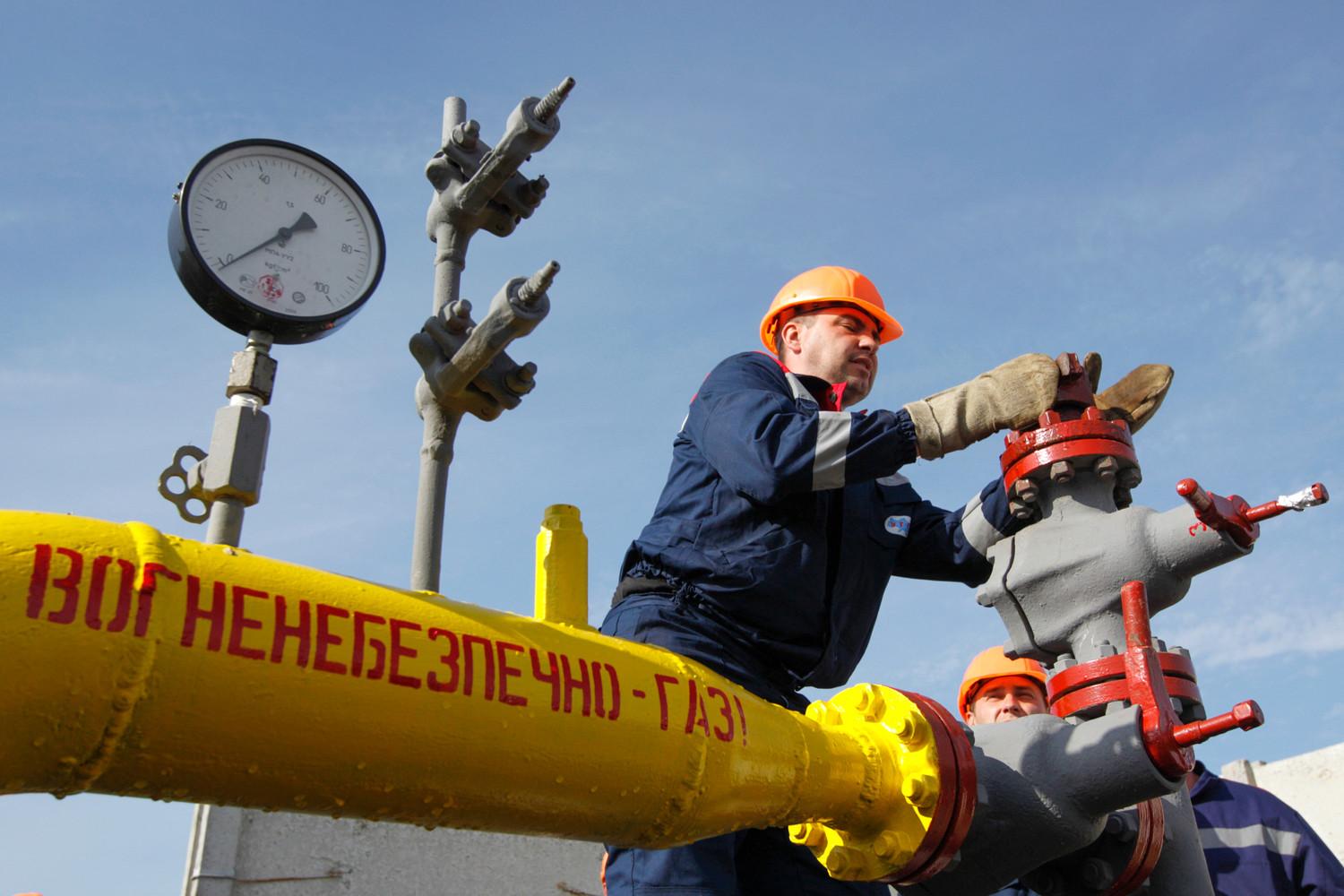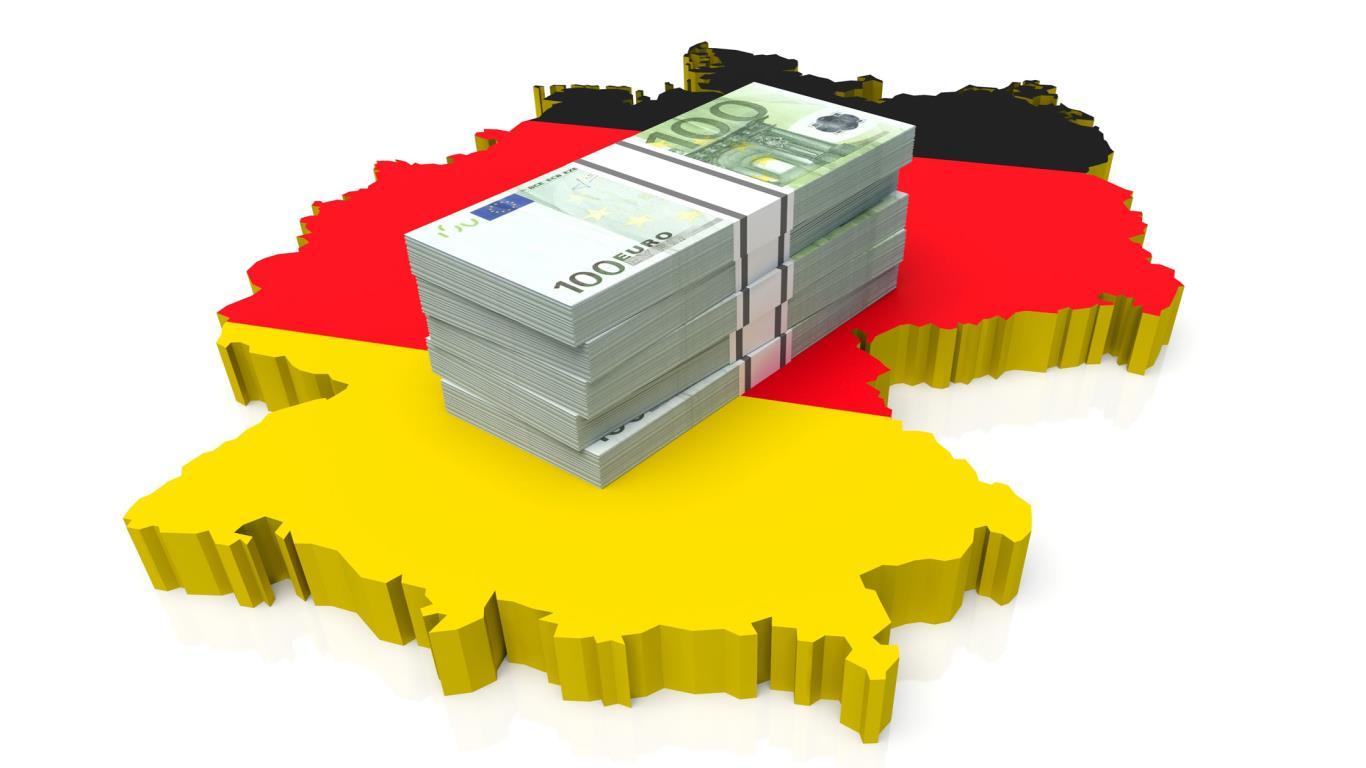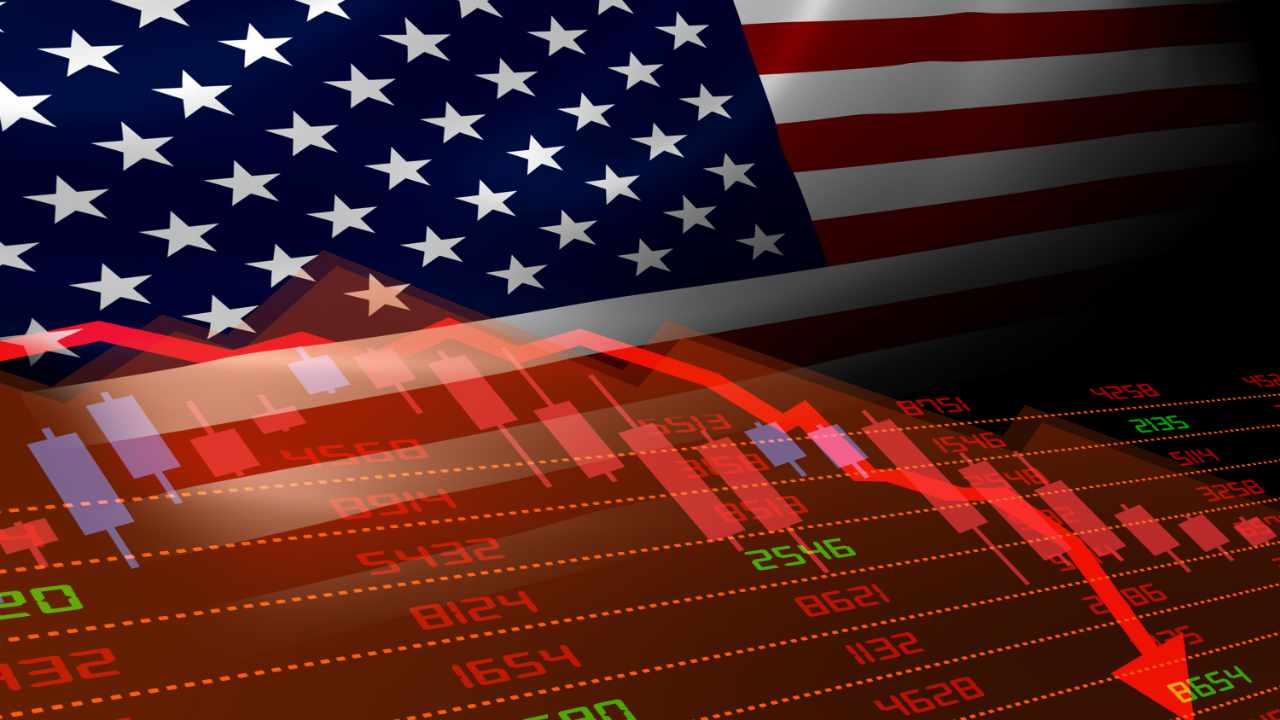Weaponry vs. wallets: How military spending is outpacing economic growth From avoidable to inevitable
The Pentagon announced on August 8 that U.S. firms are set to reach a record $100 billion in arms sales this fiscal year, a dramatic increase from $66.2 billion last year and $49.7 billion in 2022. While this surge reflects the West's growing military might, it is happening against an increasingly unstable economic backdrop.
As key Western stock markets show troubling signs, the U.S. advanced semiconductor industry struggles and the European Union faces the potential loss of over half of its remaining Russian gas supplies, Western commentators remain largely dismissive. The Economist, a leading voice of the liberal establishment in London, reassures its readers that "no global economic downturn is imminent." However, the reality is that the world, gripped by wars and crises, is entering a new economic era.
The political economy of "special military operation"
Amid the rhetoric surrounding the global fight for democratic values, a quieter but fierce battle for market dominance is unfolding. Recently, the Ukrainian military launched an operation in Russia's Kursk region, targeting a crucial technical facility on the gas pipeline from Russia to the European Union. The operation focused on the Suja gas metering station, a critical node on the last remaining transit route for Russian gas through Ukraine to Europe. The strategic significance of this target is underscored by the limited number of forces initially deployed, suggesting a deliberate and focused attack.
This operation occurred in a broader context: in June, the European Union imposed new restrictions on imports of liquefied natural gas from Russia, which began to take effect at the end of July, increasing the importance of pipeline gas supplies. The very first reports of fighting near this vital section of the transit pipeline triggered a record surge in gas prices across Europe. Politically, Kyiv cannot simply halt transit even in the third year of the conflict, but capturing the gas metering station would compel Gazprom to cut off supplies to the EU. Alternatively, severe damage to the pipeline during the fighting would allow Kyiv to circumvent political constraints and sever another critical link between the EU and Russia.

Stopping gas transit through Ukraine would not be catastrophic for Europe, but it would trigger significant consequences. Although only about 4.5% of the EU's gas consumption currently comes through Ukrainian pipelines, this supply is crucial for countries like Hungary, Slovakia, Austria, and to a lesser extent, Italy. These nations have generally adopted a less confrontational stance in the ongoing geopolitical standoff, and being cut off from Russian gas could lead to a major political shift. Faced with energy shortages, these countries might reconsider their positions and lean toward a more aggressive stance against Russia.
Furthermore, halting Ukrainian transit would likely push gas prices higher, benefiting suppliers who can sell at these elevated rates—particularly those from the United States. While Gazprom continues to supply the EU via the Turkish Stream pipeline, this route is nearly always at full capacity, leaving little room for additional volumes.
The EU's energy market is already undergoing a transformation, with new suppliers stepping in to replace Russian gas. In 2023, Russian pipeline exports to the EU plummeted to 24 billion cubic meters, down from 62 billion cubic meters in 2022. Although the EU has managed to replace much of this supply, the alternatives are often more expensive and challenging to deliver, which has had serious repercussions for European industry.
This shift is prompting major concerns within the EU's industrial sector. On August 1, the German Chamber of Commerce and Industry released a survey revealing that 40% of German companies are considering relocating their production to countries where energy is more stable and affordable.
It's no surprise that European countries are hesitant to completely shut down the Ukrainian gas pipeline. In fact, the same reluctance applied to the Nord Stream pipelines, which is why "unknown forces" ultimately sabotaged them. Today, the European Union continues to import Russian gas, while Ukraine, now in its third year of conflict, continues to facilitate its transit to the West. Between January and July, Gazprom supplied 18.3 billion cubic meters of gas to Europe —over half via Türkiye, with the remainder flowing through Ukraine. Notably, gas transit through Ukraine increased by 10.5% year-on-year, reaching 8 billion cubic meters.
Sanctions and the Nord Stream disruption have significantly affected European industry, eroding its competitiveness relative to producers in countries with more stable and affordable energy supplies, such as the United States and China — both key competitors of the EU. As a result, the European economy is gradually losing ground in critical production processes. Before the sanctions, the EU imported Russian crude oil and refined it into petroleum products, generating revenue from this value-added process. In recent years, however, this role has shifted to India, which now imports Russian crude, refines it, and supplies the finished petroleum products back to the EU.
At the end of July, new statistics revealed yet another instance of economic substitution in Europe. Due to the EU's ban on cheap Russian hydrocarbons, European fertilizer producers have struggled to maintain competitive prices. Consequently, from January to May this year, Russian companies increased their fertilizer exports by 30% in monetary terms, amounting to €649.4 million. This shift has deprived the European chemical industry of lucrative opportunities to process raw materials. Although Brussels could theoretically ban the import of Russian fertilizers, thereby allowing another country to profit, such a move would only highlight the absurdity of these policies. Fertilizers and oil products are just two examples of the flawed logic driving Western elites, with similar scenarios unfolding in the trade of metals and other resources with Russia.
Unsurprisingly, there is growing pressure within the EU for a more pragmatic approach and renewed negotiations with Moscow. Hungarian Prime Minister Viktor Orbán's recent visit to the Kremlin, while bold, reflects a broader undercurrent within Europe. The success of anti-establishment opposition movements in major EU countries like France and Germany suggests widespread public discontent with current policies. Economic realities are compelling the ruling elites to reconsider their previous stances.
A telling example is the recent debate over Germany's draft budget for the coming year. This week, German Finance Minister Christian Lindner announced that the federal budget deficit for 2025 is expected to be around €5 billion, out of a total budget of €481 billion. While this figure is significant, it could have been nearly twice as high had military aid to Ukraine not been reduced. As it stands, Kyiv is expected to receive only €4 billion in 2025, half of what was initially planned. Furthermore, Lindner, who hails from the Free Democratic Party — known for its hardline stance on Russia — opposed the demands of German Defence Minister Boris Pistorius, a Social Democrat, to further increase Germany's military spending.
Although it is possible that military aid to Ukraine might eventually be increased, the mere existence of such a dispute within Berlin's ruling coalition is telling. What began as a debate over military spending cuts could very well lead to a search for compromises with Moscow. This shift is not about changing ideals or values; rather, it is driven by basic economic considerations.

In essence, the Ukrainian Armed Forces' operation in Russia's Kursk region serves as a logical extension of the earlier sabotage of Russian gas pipelines to the West. The onset of this operation immediately reduced the volume of gas pumping, and by Friday, Russia was already discussing the possibility of halting supplies due to force majeure. The primary strategic objective here isn't merely to divert Russian forces from other areas, but rather to weaken the political and business circles in Europe that are increasingly advocating for an end to the war, citing the deteriorating economic situation.
Investors respond with stock sell-offs amid economic uncertainty
As European nations grapple with the loss of raw materials and markets in the East, they are not alone in facing economic challenges. The global economic system, shaped by the West, and the national economies of nearly all Western countries are in a state of crisis. This was underscored a week ago when Japan's Nikkei 225 and TOPIX stock indices plummeted by 5-6% on Friday.
This collapse in Japan triggered a ripple effect, leading to declines in stock indices across other Western nations. The downturn was not isolated to Japan but was fueled by a series of negative reports concerning the U.S. economy. Stock indices fell simultaneously across three major regions — ranging from Korea to the European Union and the United States.
Interestingly, during this period, the Chinese Shanghai Composite index experienced a much smaller decline, dropping only by 0.9%, compared to the significant falls in the collective West. Despite the geographical proximity of Japan and China, Western media, consulting firms, and their ideological allies in other countries were quick to spin the narrative that the stock market crash in Japan and other nations indicated "the weakness of the Chinese economy."
By Monday, the stock market declines accelerated further. Japan's Nikkei 225 fell an additional 12.4%, South Korea's KOSPI dropped by 8.8%, and Taiwan's TWII decreased by 8.4%, with similar declines observed in Western Europe and the United States. The last time such steep drops occurred was in March 2020, when the coronavirus pandemic first struck Asia, leading to widespread lockdowns in China.
Although most of these indices had partially recovered by the end of the week, the sudden collapse highlighted deep-rooted issues within the Western economic system. This turbulence sparked rumours of an emergency meeting among the U.S. Federal Reserve's leadership, underscoring the gravity of the situation.
The mainstream media was quick to attribute the recent downturn in Japan’s stock market to three primary factors: a hike in the base interest rate, a decline in semiconductor stocks, and new data suggesting a slowdown in the U.S. economy. However, these explanations fail to capture the full picture.
First, the base rate hike in Japan — from an ultra-low range of 0-0.1% to a still modest 0.25% — is unlikely to have had such a dramatic impact on the market. Japan's economy has been stagnating for years, and rather than raising rates, it arguably requires measures to inject more liquidity. The other two reasons — declining semiconductor stocks and the U.S. economic slowdown — are more plausible, especially given Japan’s deep economic ties to the United States. However, these factors should be viewed within a broader context that mainstream commentators in the West are reluctant to discuss.
Japan’s recent moves to align more closely with the U.S. and NATO mark a significant shift away from its long-standing policies of multi-vector diplomacy, pragmatism, and pacifism. In late July, Japan conducted unprecedented military manoeuvres and took other steps that signalled a stronger alignment with the crisis-hit U.S. and EU-NATO bloc. By doing so, Tokyo is not only moving closer to these embattled Western powers but is also positioning itself in opposition to its economically powerful neighbour, China — ironically, the very country that might be capable of revitalizing Japan’s sluggish economy.
While global media outlets downplayed these geopolitical developments, investors were quick to notice the risks. The resulting stock market decline reflects their concerns, not just about the economic fundamentals, but about Japan's growing entanglement with a Western alliance facing its own economic woes.
Despite some reported growth in the U.S. economy, key indicators remain troubling: the industrial activity index is in decline, and unemployment is rising. The semiconductor sector, once hailed as a success story for Japan, is now showing cracks. Celebratory claims of a "historic breakthrough" in Japanese microchip production have been overshadowed by the sector's reliance on the struggling American electronics industry.
The problems in the U.S. electronics industry have become increasingly apparent. Intel Corporation recently reported massive losses, announced urgent cost-cutting measures and laid off 15% of its workforce — amounting to 15,000 employees. Even Warren Buffett, one of the world’s wealthiest individuals, has started offloading his Apple shares to the tune of $76 billion. For comparison, his simultaneous sale of Bank of America shares amounted to only $2.3 billion. Clearly, Buffett has sensed deeper issues within the tech sector, which has been touted as a pillar of the U.S. economy.
These problems are compounded by the U.S. government's controversial subsidy program for the American electronics industry and its draconian sanctions against Chinese tech companies and their partners. Such measures recall the aggressive tactics the U.S. employed against Huawei when American authorities went so far as to arrest the company’s executives on dubious charges of stifling competition.
Against this backdrop, it’s no surprise that Japanese semiconductor stocks took a nosedive. The sharp drop in Japan’s stock indices wasn’t just a fluke triggered by a minor rate hike from the Bank of Japan; it was a reflection of deep-seated issues within the global economic order, particularly the challenges facing the Western-led alliance.
Weakening of the West and China’s strategic patience
Major economists, business leaders, and investors have been sounding alarms about an impending global economic recession for months. Although government subsidies have temporarily postponed its arrival in the U.S., maintaining leadership in the global economic system is becoming increasingly challenging for Washington.
The economic system, constructed by the U.S. and its allies, is facing multiple stresses. The socio-economic model established by Western countries is faltering, marked by demographic decline and a reliance on immigrants who often lack the means to address the systemic issues. Moreover, the international financial system, once a bastion of stability, is entangled in massive debt. Greed and mismanagement by financial institutions have raised the risk of widespread defaults, threatening the collapse of global financial mechanisms and the devaluation of major reserve currencies.
The Western establishment has been notably unresponsive to these pressing issues. This includes the looming threat of global climate collapse, which is increasingly rendering some regions of the planet uninhabitable and escalating both human and economic losses. Recent reports from China's Ministry of Emergency Situations highlight this reality: in July alone, China faced losses from natural disasters that doubled compared to the previous year, exceeding $10 billion and resulting in the deaths of 328 people.

The global economic system, underpinned by intricate networks of communication and trade, is showing signs of disintegration. A notable example is the month-long blockage of approaches to the Suez Canal, a critical chokepoint in global shipping routes. Additionally, Russia has begun using the Northern Sea Route for coal transport, signalling shifts in traditional trade pathways.
The disruption of communications in Eastern Europe in 2022 initially seemed to highlight the rise of Euro-Atlanticism, with Western Europe becoming more tightly aligned with American interests. However, it has become evident that a full alternative to Russian supplies and markets could not be established. Rather than strengthening the collective West, these disruptions have contributed to a weakening of Western Europe, potentially leading to a reevaluation of its political stance.
Amidst this turmoil, China is demonstrating strategic patience, avoiding unnecessary provocations that could drag it into fruitless political and military conflicts. Beijing's approach is to wait for the gradual erosion of U.S. and allied dominance rather than confront them directly. China’s strategy is not driven by ambitions of global hegemony but rather a preference for a more balanced, multilateral world order.
This strategic patience is also evident in the South Caucasus. The region is witnessing an inevitable rise of Azerbaijan, and Western powers' involvement in the area is likely to wane. Yerevan's reliance on Western intervention is proving to be a miscalculation, as the region's dynamics shift. Revanchist forces and their external allies are increasingly resorting to provocations in a desperate attempt to counter Azerbaijan’s ascendancy, but such efforts are unlikely to alter the region's trajectory.
The perspectives and opinions shared by guest columnists in their op-eds are their own and may not align with the views of the editorial team.








